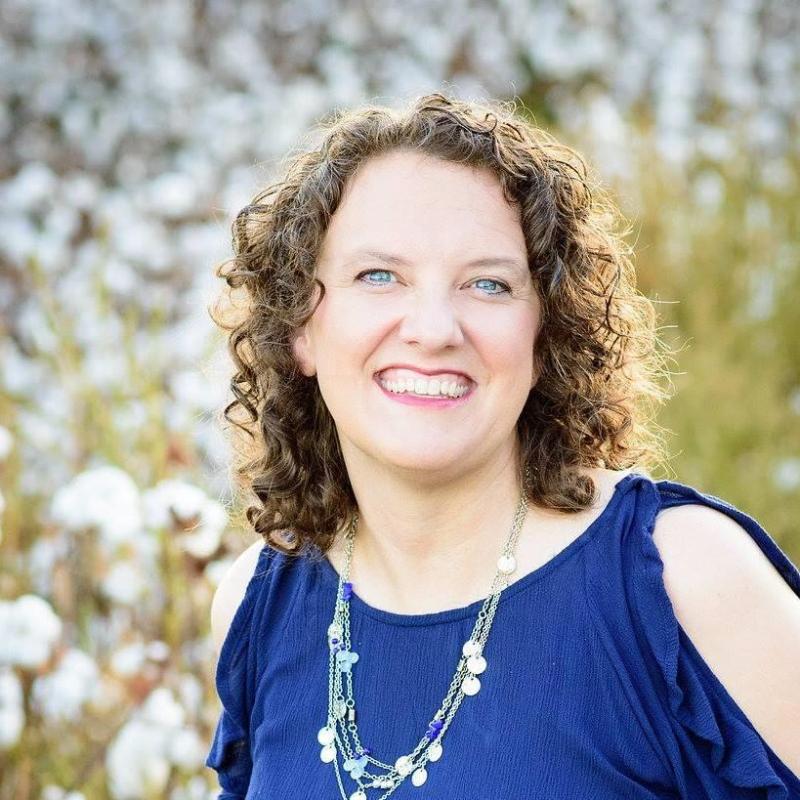Death has lost its sting - how becoming a Christian eradicated a humanist's overwhelming fear of dying | Article | Unbelievable
By: Unbelievable



Death has lost its sting – how becoming a Christian eradicated a
humanist’s overwhelming fear of dying
16 February 2023
As an ardent atheist, Kim Endraske disliked Christians, but wrestled daily with existential dread. Jana Harmon shares Kim's story of discovering the God who dramatically changed her life
It has been said that there are two things in life that we can be certain of: Death and taxes. As much as we try to avoid one or both of those things, they are inescapable. For the atheist, death is the end of our physical existence. There is no soul or spirit that exists beyond the grave, beyond death, only memories that live on in the lives of those whom they've left behind.
If that is true, there should be nothing to fear in death for it is just the end. And, for many, that becomes a mandate to make the best of our time here now - to live life to its fullest, to accomplish, to eat, drink and be merry, for tomorrow we die. Or perhaps we mindlessly pursue distractions and pleasures to avoid the inevitable.
Yet for others, the fear of death can become overwhelming, even for those who don't believe in God, immortality and the afterlife. The fear of eternal nothingness, of blackness, can cause a fear in life of the unknown, of what will happen next, of when and whether death is coming sooner or later.
Former atheist, Kim Endraske, seriously wrestled with this existential reality. Fear of death was her constant companion. But that fear wasn't enough for her to change her mind about God just to soothe a personal discomfort. After all, atheists are the adults in the room, called to soberly and courageously live with realities, such as death and dying, that may be personally unsettling. They are not to succumb to the childish notions of happily ever after in the afterlife. What was it then that changed Kim's mind about the reality of God, and through that, lose her fear of death?
The best and brightest
Even in childhood, Kim loved to read, write and discuss ideas. Raised in an academically rigorous home, her parents held high expectations for her as an intellectually gifted student. She always wanted to be "the smartest, the best, the brightest, to be looked up to for her academic excellence". Even at an early age, she decided that God did not exist. When she was 5 years old, Kim told her grandmother there was no God. After all, there was no religion in her home, preferring instead to "make up our own rules" and "do things our own way". Kim liked making up rules and obeying them, helping other people and living a moral life because it made her feel good about herself.
As a humanist, her life was centered on human wisdom, intellect and science. Evolutionary theory convinced her there was no need for God. God was nothing she could see, touch or feel. And most of the Christians she had met didn't seem too interested in science or good at keeping their religious rules, ignoring their own hypocrisy. It fed into her negative perception of what she thought Christianity was and who she thought Christians were. It was nothing she wanted to be a part of.
Beauty and death
Despite confidence in her atheistic view, Kim wrestled with understanding the beauty she observed in the world and with death. While in high school, she was sitting out in a grassy field flush with trees among a clear blue sky. She began to wonder: "How is this possible?" and began to pray: "God, if you're real, will you please show yourself to me?" But, nothing happened.
Although she didn't receive any distinct answer from God, the beauty of creation still "put a desire in her heart to search for him". Kim also struggled with death, with an ongoing constant fear of death. Her quest to live as a moral person was partly motivated by her attempt to avoid death. It also made her wonder: "Is avoiding death really all that life is?"
An outspoken atheist
These questions motivated Kim to take a comparative religion class at university, to begin exploring the questions of life and of God. She was first drawn towards rule-based religions, such as Judaism and Mormonism. Kim also began to question her Christian acquaintances about their beliefs in order "to show how ridiculous it was to believe the Bible is God's word". She was exploring religion in order to destroy it, feigning openness, yet at the same time closing the door, saying to herself:
"'OK God, I'll open the door and you could do something', but really, my heart was hard. I wish that I could say I was open minded. I would have called myself open minded. I would have said, 'Oh, I'm open minded. If you can prove it to me, I will believe it,' but I really wasn't open minded. I really had already made up my mind. I was an atheist, and I had made up my mind about that, and I had told everybody. I was an evangelical atheist. I was trying to convert people to be atheists. I wasn't just a closet atheist. I was an outspoken atheist."
Get access to exclusive bonus content & updates: register & sign up to the Premier Unbelievable? newsletter!
Breaking her own rules
Although a "very moral person", Kim began to break the rules she had set up for herself. At age 16 she became intimately involved with her boyfriend, something she would only do if he was the one she was to marry. Two years later they broke up. She dated another man throughout college, again convinced he was the one she was to marry, maintaining a monogamous relationship, true to her ideals.
During their engagement, she garnered enough strength to break it off and move to a new city due to his abusive tendencies. Again, Kim had not lived up to her own rules. Hitting rock bottom, she felt alone and lost and conflicted about her life. Out of the blue, she received a phone call from an old friend who happened to be getting married the very next day in her new city, hundreds of miles away from where they had once known each other. Fresh off a break-up, Kim didn't want to go to the wedding but had no reason not to go.
Alone at the reception, she was invited to sit at a table and became acquainted with a man who quickly became a new friend over the ensuing weeks. As a Christian, he began talking with her about God but she would steer the conversation in order to show him how foolish he was to believe.
After months of discussion, he told her who Jesus was and why he came - to save broken people who had broken the rules because they couldn't save themselves. He called this "the gospel" or "good news". Kim knew he was talking about her, that she couldn't even keep the rules she had made for herself, much less God's standards. She learned that Jesus was God and that he had died on a cross for her, to save her.
Suddenly she realised that "the idea that God himself would take on human flesh and walk among men and then die for me, for the sins of the world, it was the best news I'd ever heard". Her walls of resistance dropped. With a softened heart, Kim wanted to believe this good news was true so she said this prayer:
"'Ok, God, if this is real, I want to believe this. I want to believe that this is real. Will you please help me? Help me to believe that this is real. I want to be saved. I want to believe in you. I want to trust you.' But it's hard. It's hard to go from unbelief to belief. And yet when I'm praying, I'm saying, 'Help my unbelief. I want to believe. Help me to believe this.' And so in that moment, that was the beginning of God beginning a work in me."
Digging deeper
Kim accepted the good news of Jesus as true for her life. As a thinker, Kim still wanted to know that she had good reasons to believe it was substantively grounded for her mind. In the past, she had rejected the Bible, something she had never read, so she began to read the biographies of Jesus in the books of Matthew, Mark, Luke and John with an open mind.
Praying to God for guidance, she found the Bible to be not only life transforming, but the real, true, word of God. She also wanted answers to her questions about God and the Bible, to see if Christian belief was indeed reasonable and rational and "not just pie in the sky faith".
Her intellectual doubts were quelled through diligent, ongoing research helping to confirm that Christianity is true. Despite the heartbreaking loss of a child, her rising emotional doubts were eased through the felt presence of God through that tragedy. Fear of death no longer controls her and she now lives in the freedom that forgiveness of God brings, not in the condemning letter of the law which once ruled her life.
Describing her life now as Christian, Kim says:
"I'm not the same person that I once was. I have hope. I have joy. I have peace in a way that I can now go through these trials. They are still hard. I don't like them. But I can have joy now in Jesus, in knowing that this world isn't all that there is."
Kim's life transformation is obvious and drives her towards helping others find what she once rejected. A teacher at heart, she now fills her days sharing the truth of Christianity and the reality of God through her YouTube channel (FormerAtheist58), blog (Teach What is Good), and book 'God is Real: The Eyewitness Testimony of a Former Atheist'.
If you'd like to listen to Kim Endraske tell her full story, tune into the Side B Stories podcast with Jana Harmon. Or, you can find it on the Side B Stories website at www.sidebstories.com.
Jana Harmon hosts the Side B Stories podcastwhere former atheists and sceptics talk about their turn from disbelief to belief in God and Christianity. She is a teaching fellow for the CS Lewis Institute of Atlanta and former adjunct professor in cultural apologetics at Biola University where she received an MA in Christian apologetics. Jana also holds a PhD in religion and theology from the University of Birmingham in England. Her research focused on religious conversion of atheists to Christianity. Her forthcoming book is entitled, Unlikely Stories of Atheists Finding God: Conversions to Christianity in the Contemporary West.







A Word: This is a celebration of an atheist individual finding peace from despair. It is another perspective. It is NOT meant to tear down any atheists or put atheist in a defensive posture. For I am fully aware that people move back and forth in varying phases of their lives and existences touching and agreeing on a great many situations, policies, concepts, and realities.
Let's enjoy the story for what it is, even as we talk about its facets according to discussion 'needs.'
Just another atheist conversion story. Tomorrow it could be a Christian conversion story. Only the board knows for sure!
It is . . .interesting. . . when people who can dish it out can't/won't accept related in-coming.